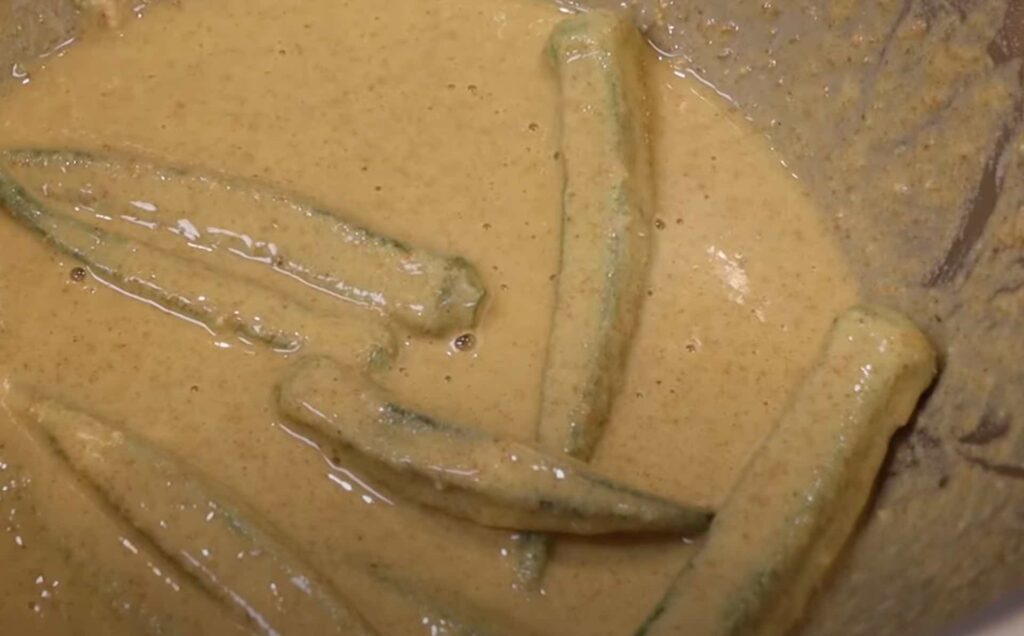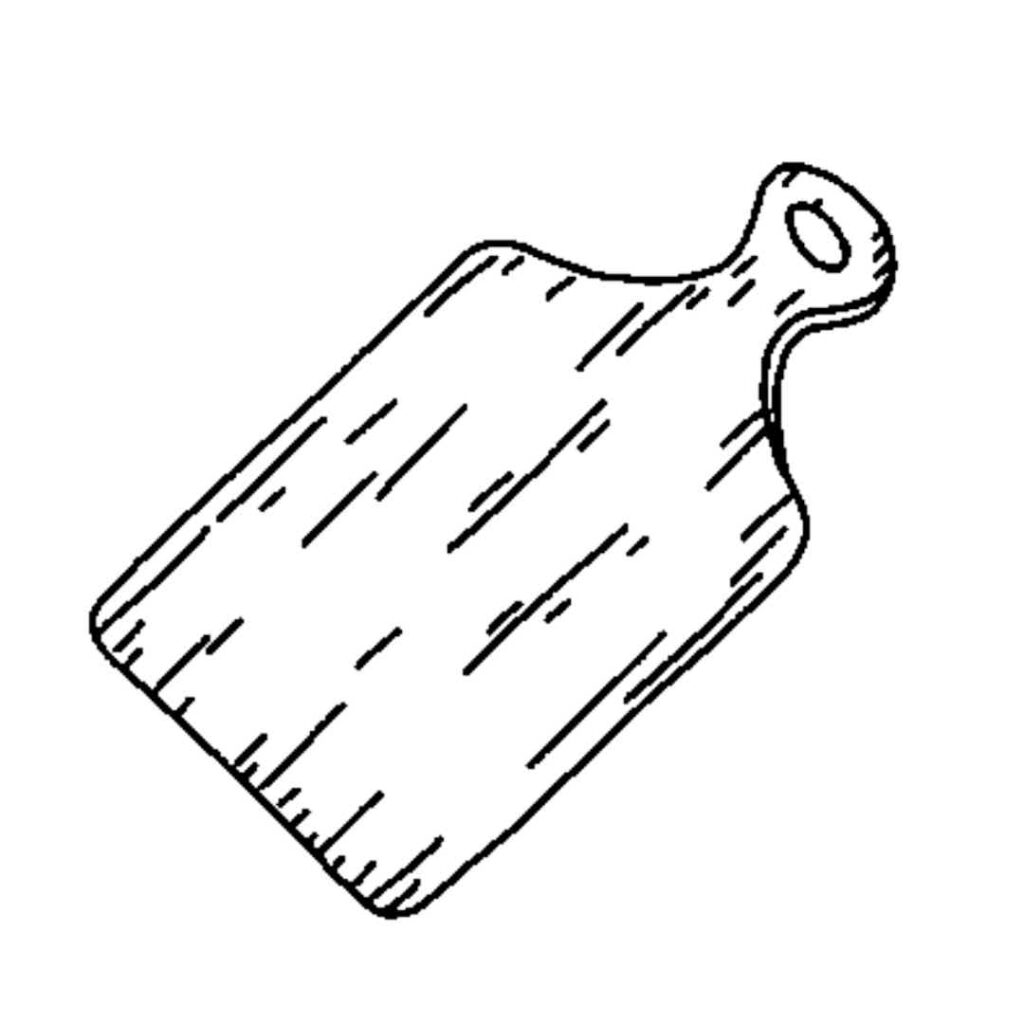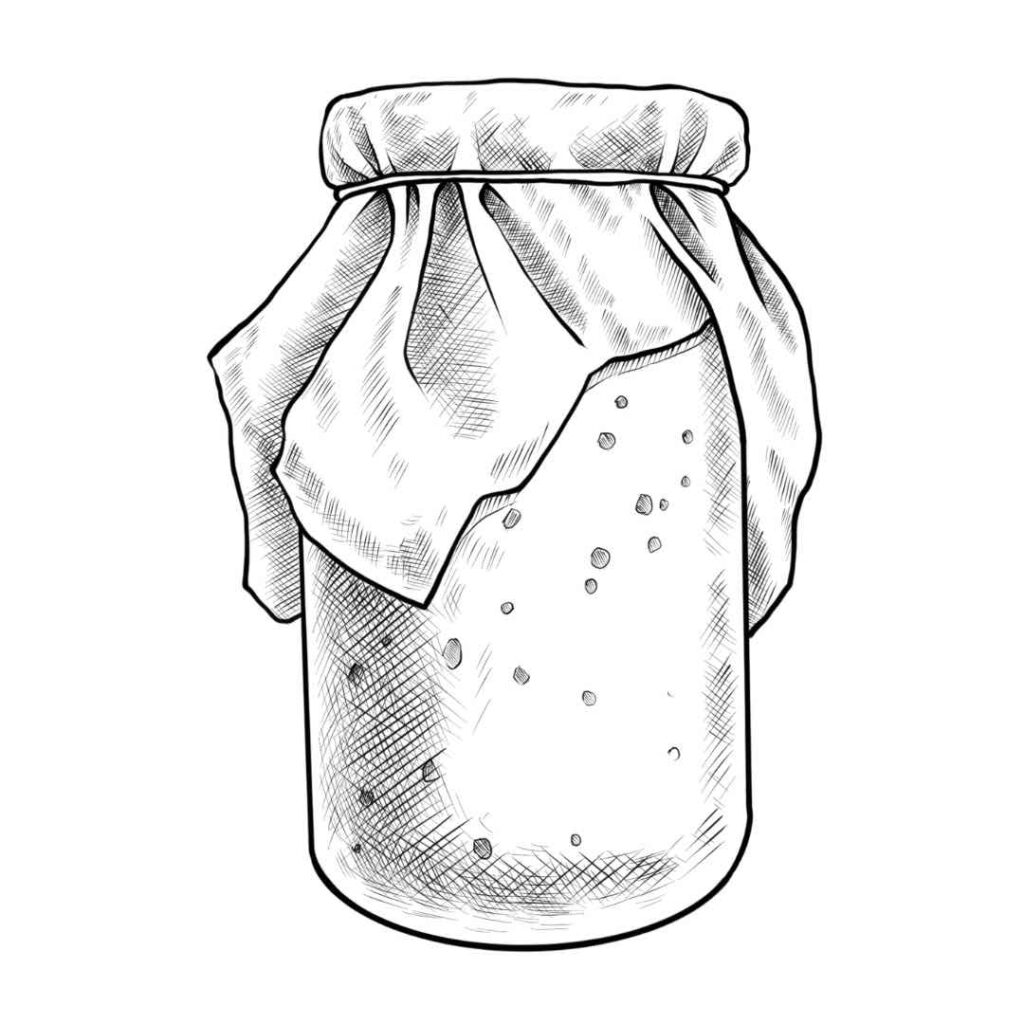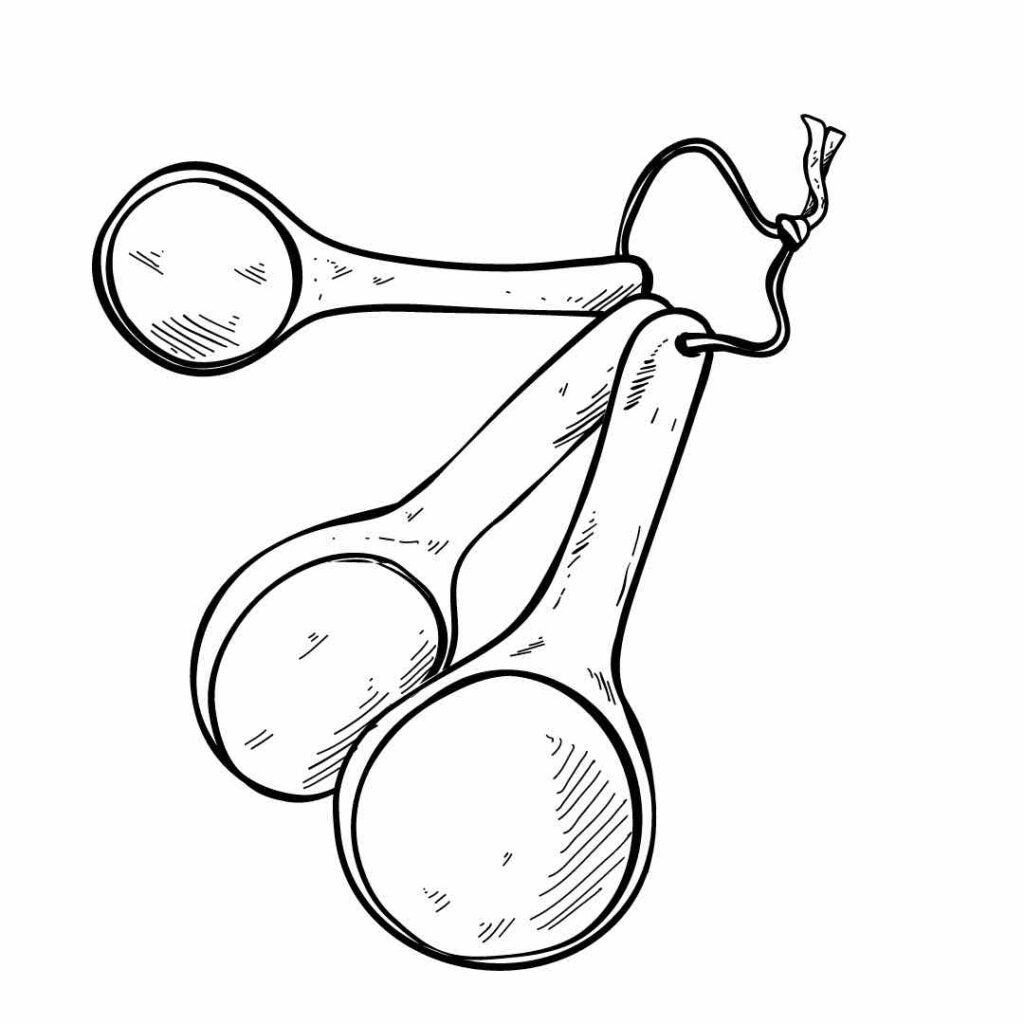A tasty snack

For optimal deep-frying, maintain an oil temperature between 350°F to 375°F (175°C to 190°C). This ensures food cooks evenly: golden and crispy on the outside, while fully cooked inside, without absorbing excess oil.
Made with a unique 7-spice blend, including aromatic cardamom, smoky paprika, and zesty cayenne, each bite offers a delightful sensory experience. Whether you prefer a light dusting or a thicker batter, we guide you step-by-step to achieve golden-brown perfection. Ready to elevate your snacking game? Grab some okra and let’s get frying!”


For optimal deep-frying, maintain an oil temperature between 350°F to 375°F (175°C to 190°C). This ensures food cooks evenly: golden and crispy on the outside, while fully cooked inside, without absorbing excess oil.

Serves:
6 people

Time to Prepare:
15 min

Time to cook or cure:
10 – 15 min

Serves:
Frying

Serves:
6 people

Time to Prepare:
10 min

Time to cook or cure:
10-15 min

Skills:
frying

For the light Coating
14 tender okra (lady fingers) clean and dry
For the light Coating
00 g of plain flour
½ tsp salt
1 tsp 7-spice mix
For the thicker batter
180 g flour
2 eggs
1 tsp 7-spice
Salt
If you are making your own 7 spice mix
1/2 tsp ground cinnamon
1/4 tsp cardamom (or cloves)
1 tsp ground coriander
1 1/2 tsp ground turmeric
1/2 tsp ground ginger
2 tsp smoked paprika
2 tbsp ground cumin
1/8 tsp cayenne pepper (or 1/2 tsp ground black pepper)
Useful guidelines
Feeding your Starter
Our Starter is fed 100% Wholemeal Flour, this is to give the bread more flavour as the flour contains the wholegrain. You can use white flour or any other grain you prefer. The best flour for starting end feeding would be rye due to its high nutrient content and levels of naturally present lactobacilli.
Optimum Proving Temperature
Yeast works best at 24C. This can be hard to control at home therefore as a general rule use warm water in the winter and cold/ room temperature water in the summer.
Adding Salt to Bread
Salt is important to add flavour to bread however it is also used to control the activity of the yeast. Adding the salt 20-30 minutes after the first mix gives the yeast a head start.
Folding
Most bread is kneaded to create strong gluten. However, with slow fermentation folding allows the gluten to be formed over a longer period. This process is called autolyse. Water in contact with flour will activate the enzyme that starts to turn the protein glutanine into strong gluten strands.
Shaping
Place your dough on a slightly wet worktop. Knock back the dough while shaping it into a rectangle. Fold the edge furthest away from you 2/3rd of the way down and press into the dough. Fold the edge nearest to you on top and press again. Gently stretch out the dough (left to right), and then fold the left edge 2/3rd of the way and then the right side, pressing firmly. Start by rolling the edge nearest to you away from you. You want to create enough tension on the surface to give the loaf a good shape without tearing the gluten.
Baking
It is important to preheat your oven. If you are planning on using either a baking tray or stone it is also important to preheat these. If you oven does not have a steam setting then place a pan of boiling water in the oven during the preheating.
Simply follow these steps:
For the lighter batter:
For the lighter batter:
Storage
They are best eaten directly after frying.
PRO TIP:
Mix up your spice choices to make this recipe your own!

Recipe Categories
We lost so much.
Our pastures are destroyed, many of our old olive trees, the young orchards, the irrigation systems, our most important tools, water pumps, and power setup—either melted or destroyed.
Our food and hay stores, the fences, and many of the stable buildings are either damaged or lost entirely.
What took years to build was reduced to ash in a single afternoon.
Ready to Recharge and Enjoy Real Food in Nature?
Cook, connect, and grow in the heart of our regenerative farm.
Real food. Deep rest. Lifelong memories.
